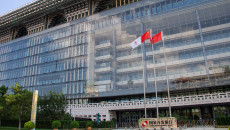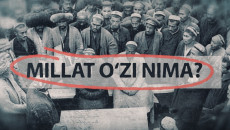Is Gaza Changing the West?
Israel's war to "destroy" Gaza has turned Palestinian liberation into an international issue. Neither media disinformation nor lobbyists' money can help restore Israel's tarnished image. Many Israelis are also realizing this – Al-Jazeera journalist , political reviewer Symbolic Gunpowder from the article.
For too long we have been told that because of Israel's special status, fighting for Palestinian rights across Europe is a political loser. However, this closeness between Israel and the West is strengthened not only by politics, but also by other reasons. In countries such as the United States, Great Britain and France, supporters of Israel serve as powerful constituencies.
Through money, media influence, and alliances with other influential political and religious circles, lobbyists often shape politicians' futures.
The American Israel Public Affairs Committee (AIPAC) is an organization that represents the power of the pro-Israel lobby. Every US election cycle is marked by events that demonstrate the disproportionate political power wielded by AIPAC. For example, in June, progressive Rep. Jamaal Bowman, a New York Democrat, was unseated by a pro-Israel candidate. AIPAC spent $15 million to replace Bowman.
However, lobby support is no longer a guarantee of political success or failure. The reasons for this are the growing awareness of the Palestinian liberation struggle among ordinary Americans, the successful resistance strategy of some progressives, and the changing political demographics of the Democratic Party.
Israel's war to "destroy" Gaza has turned Palestinian liberation into an international issue. Neither media disinformation nor lobbyists' money can help restore Israel's tarnished image. Many Israelis are also realizing this.
The horrific war, the determination of the Palestinian people, and global solidarity movements are motivating many governments around the world to take a stronger stance in support of Palestine.
The recent waves of recognition of the Palestinian state that spread throughout Europe confirm this fact.
Spain's Socialist Prime Minister Pedro Sánchez attributed Spain's decision to recognize Palestine to "historic justice for the legitimate aspirations of the Palestinian people."
The country's deputy prime minister, Yolanda Díaz, said on May 23 that Spain "will continue to press for the protection of human rights and an end to the massacre of the Palestinian people." Diaz concluded his statement by saying, "From the river to the sea, Palestine will be free."
If such an attitude is limited to one country, that country is considered a "radical" exception. But Spain is now not the only exception, but only one example.
Even before the official results of the French elections were announced, Matilda Panot, president of the French Independent parliamentary bloc, announced on July 7 that the bloc would recognize a Palestinian state within two weeks. What's interesting about Panot's announcement is that he didn't see the recognition of Palestine as a symbolic move, but as "one of the tools we have to put pressure on Israel."
For the French left, support for the Palestinian cause has not been a negative factor during a very heated election. Perhaps this was one of the secrets of their success. Although right and far-right parties have tried hard to defeat the left because of their negative stance on the Gaza war, they have fared poorly.
A similar situation was repeated in Great Britain. The Conservatives' staunch support for Israel, if not a negative factor, has proved counterproductive. Some pro-Israeli members of the victorious Labor Party were also defeated by independent candidates or saw their votes drastically reduced.
Independent Adnan Hussain, who defeated Labour's Keith Holler in Blackburn, put it very well in his statement. "I promise to air your views on the injustice being done to the people of Gaza in places where our 'representatives' have been defeated," he wrote.
The political shift in Europe from being pro-Palestinian, or at least staunchly supportive of Israel, is happening much faster than anyone hoped or expected.
Although the war played a major role in this process, this shift is expected to intensify in the coming years as European voters grow weary of their governments' blind support for Israel. They are using their democratic system to make real changes in government, and they are doing real politics to stop the Israeli occupation of Palestine.
For example, the responsible governments of Spain, Norway and Ireland are adequately responding to the wishes of their people. Hegemonic countries like the US should be aware of the flaws in their policies and choose the right path.
Ramzi Barud, Al - Jazeera journalist, political commentator















